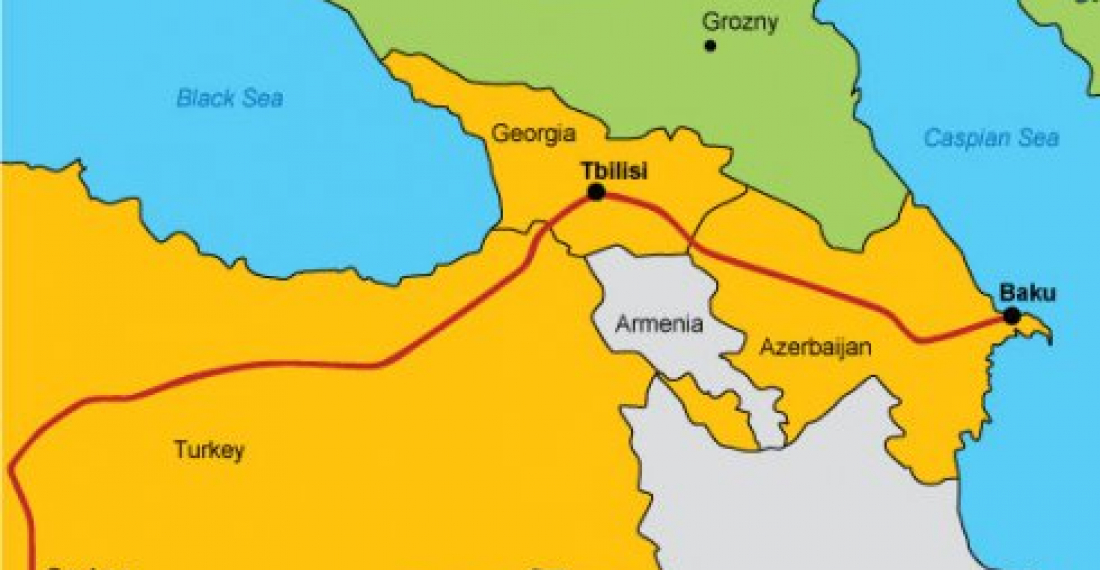Военного решения нагорно-карабахского конфликта не существует, заявил генеральный секретарь НАТО Андерс Фог Расмуссен в пятницу, выступая в Азербайджанской дипломатической академии (АДА).
"Единственный путь продвижения вперед в конфликте - это диалог, компромисс и сотрудничество," - сказал Расмуссен, сообщает официальная страница генсека в Twitter. "Я глубоко обеспокоен решением Азербайджана помиловать офицера Рамиля Сафарова. Это наносит ущерб доверию и не способствует мирному процессу," - пишет генсек НАТО.
По его мнению, конфликт не должен быть возобновлен. "Напряженность в регионе должна быть снижена и должны быть приняты меры для содействия сотрудничеству и примирению. Азербайджан - важный партнер НАТО, и НАТО будет продолжать оставаться важным партнером Азербайджана", - отметил Расмусен.
31 августа осужденный в Венгрии на пожизненный срок азербайджанский офицер Рамиль Сафаров был экстрадирован на родину. В тот же день президент Азербайджана Ильхам Алиев своим указом помиловал его, а министр обороны присвоил звание майора. Рамилю Сафарову была выплачена зарплата за восемь лет, а также подарена квартира. В связи с этим президент Армении Серж Саргсян созвал экстренное заседание Совета национальной безопасности и совещание аккредитованных в республике послов и заявил о прекращении дипломатических отношений с Венгрией.19 февраля 2004 года в Будапеште Рамиль Сафаров ночью зарубил топором спящего армянского офицера Гургена Маргаряна. Оба офицера проходили в венгерской столице курс английского языка в рамках программы НАТО "Сотрудничество во имя мира". Сафарову было предъявлено обвинение по статье 166.2 УК Венгрии (убийство при отягчающих обстоятельствах), предполагающее лишение свободы сроком от 10 до 15 лет или пожизненное заключение.Суд приговорил Сафарова к пожизненному тюремному заключению без права амнистии в первые 30 лет.
>Начало карабахскому конфликту было положено в 1988 году, после заявления преимущественно населенного армянами Нагорного Карабаха о выходе из состава Азербайджана. 10 декабря 1991 года в Нагорном Карабахе состоялся референдум, где 99,89% высказались за полную независимость от Азербайджана. Инициированные Азербайджаном вслед за этим широкомасштабные боевые действия привели к потере контроля не только над Нагорным Карабахом, но и прилегающими к нему семью районами. С 12 мая 1994 года после вступления в силу трехстороннего соглашения о перемирии в зоне конфликта прекращены военные действия, в результате которых с обеих сторон погибло примерно 25-30 тысяч человек, и около 1 миллиона были вынуждены покинуть свои дома. Соглашение об установлении режима прекращения огня соблюдается до сих пор. С 1992 года по сей день ведутся переговоры по мирному урегулированию конфликта в рамках Минской группы ОБСЕ, сопредседателями которой являются США, Россия и Франция.
Военного решения нагорно-карабахского конфликта не существует -генсек НАТО
Военного решения нагорно-карабахского конфликта не существует -генсек НАТО







